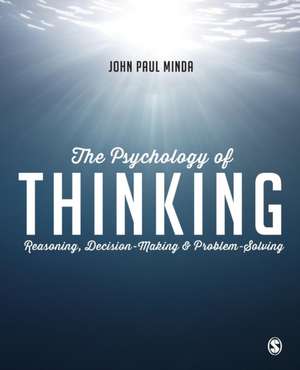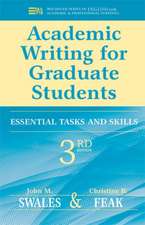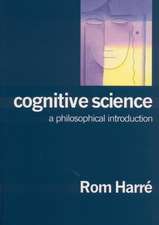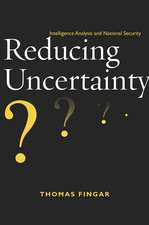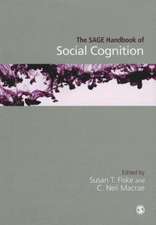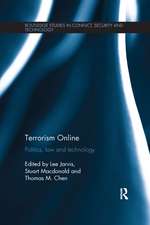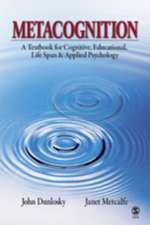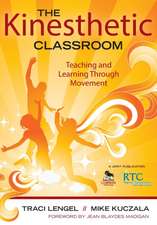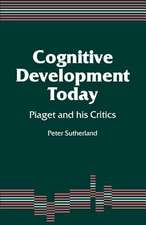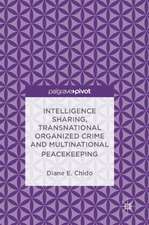The Psychology of Thinking: Reasoning, Decision-Making and Problem-Solving
Autor John Paul Mindaen Limba Engleză Paperback – 24 sep 2015
How do we define thinking? Is it simply memory, perception and motor activity or perhaps something more complex such as reasoning and decision making? This book argues that thinking is an intricate mix of all these things and a very specific coordination of cognitive resources. Divided into three key sections, there are chapters on the organization of human thought, general reasoning and thinking and behavioural outcomes of thinking.
These three overarching themes provide a broad theoretical framework with which to explore wider issues in cognition and cognitive psychology and there are chapters on motivation and language plus a strong focus on problem solving, reasoning and decision making – all of which are central to a solid understanding of this field.
The book also explores the cognitive processes behind perception and memory, how we might differentiate expertise from skilled, competent performance and the interaction between language, culture and thought.
| Toate formatele și edițiile | Preț | Express |
|---|---|---|
| Paperback (2) | 377.56 lei 3-5 săpt. | +29.55 lei 7-13 zile |
| SAGE Publications – 18 oct 2020 | 377.56 lei 3-5 săpt. | +29.55 lei 7-13 zile |
| SAGE Publications – 24 sep 2015 | 383.82 lei 38-44 zile | |
| Hardback (1) | 624.87 lei 3-5 săpt. | +38.71 lei 7-13 zile |
| SAGE Publications – 18 oct 2020 | 624.87 lei 3-5 săpt. | +38.71 lei 7-13 zile |
Preț: 383.82 lei
Nou
73.44€ • 76.68$ • 60.78£
Carte tipărită la comandă
Livrare economică 01-07 aprilie
Specificații
ISBN-10: 1446272478
Pagini: 272
Dimensiuni: 186 x 232 x 14 mm
Ediția:1
Editura: SAGE Publications
Colecția Sage Publications Ltd
Locul publicării:London, United Kingdom
Recenzii
The Psychology of Thinking offers students an excellent introduction to a number of important, fascinating topics with an insightful organization and integration. Minda engagingly presents the material to have both theoretical substance and practical appeal.
As a former CEO of Mercedes-Benz I always tried to foster and trigger ideas for innovations in employees - the business result showed that focusing on creativity in your workforce pays out. This book is very relevant for practitioners who lead people and need to tap their brains, which is the 'gold mine' for problem solving. I compliment J. P. Minda, since I think that his wish "for a single, comprehensive textbook on this topic" came true.
Cuprins
SECTION I: THE ORGANIZATION OF HUMAN THOUGHT
Chapter 1. The Psychology of Thinking
Chapter 2. The Psychology of Similarity
Chapter 3. Knowledge and Memory
Chapter 4. Concepts and Categories
Chapter 5. Language and Thought
SECTION II: THINKING AND REASONING
Chapter 6. Inference and Induction
Chapter 7. Deductive Reasoning
Chapter 8. Context, Motivation and Mood
SECTION III: THINKING IN ACTION - DECISION MAKING, PROBLEM SOLVING, AND EXPERTISE
Chapter 9. Decision Making
Chapter 10. Problem Solving
Chapter 11. Expertise and Expert Thinking
Descriere
Instructors - Electronic inspection copies are available or contact your local sales representative for an inspection copy of the print version.
How do we define thinking? Is it simply memory, perception and motor activity or perhaps something more complex such as reasoning and decision making? This book argues that thinking is an intricate mix of all these things and a very specific coordination of cognitive resources. Divided into three key sections, there are chapters on the organization of human thought, general reasoning and thinking and behavioural outcomes of thinking.
These three overarching themes provide a broad theoretical framework with which to explore wider issues in cognition and cognitive psychology and there are chapters on motivation and language plus a strong focus on problem solving, reasoning and decision making – all of which are central to a solid understanding of this field.
The book also explores the cognitive processes behind perception and memory, how we might differentiate expertise from skilled, competent performance and the interaction between language, culture and thought.
Notă biografică
John Paul Minda is a Professor of Psychology and a member of the Brain and Mind Institute at Western University, in London, Ontario. As a researcher, he is interested in thinking as it relates to concepts and categories. He runs a research laboratory that investigates how people learn new categories and represent them with concepts. He also studies how conceptual structure interacts with and affects behavioural outcomes. He has done research on medical expertise and on the kinds of reasoning tasks that physicians engage in. As an instructor, and as a psychologist in general, he is interested in other aspects of thinking as well. Every year since 2003, he has taught a course on the Psychology of Thinking.
